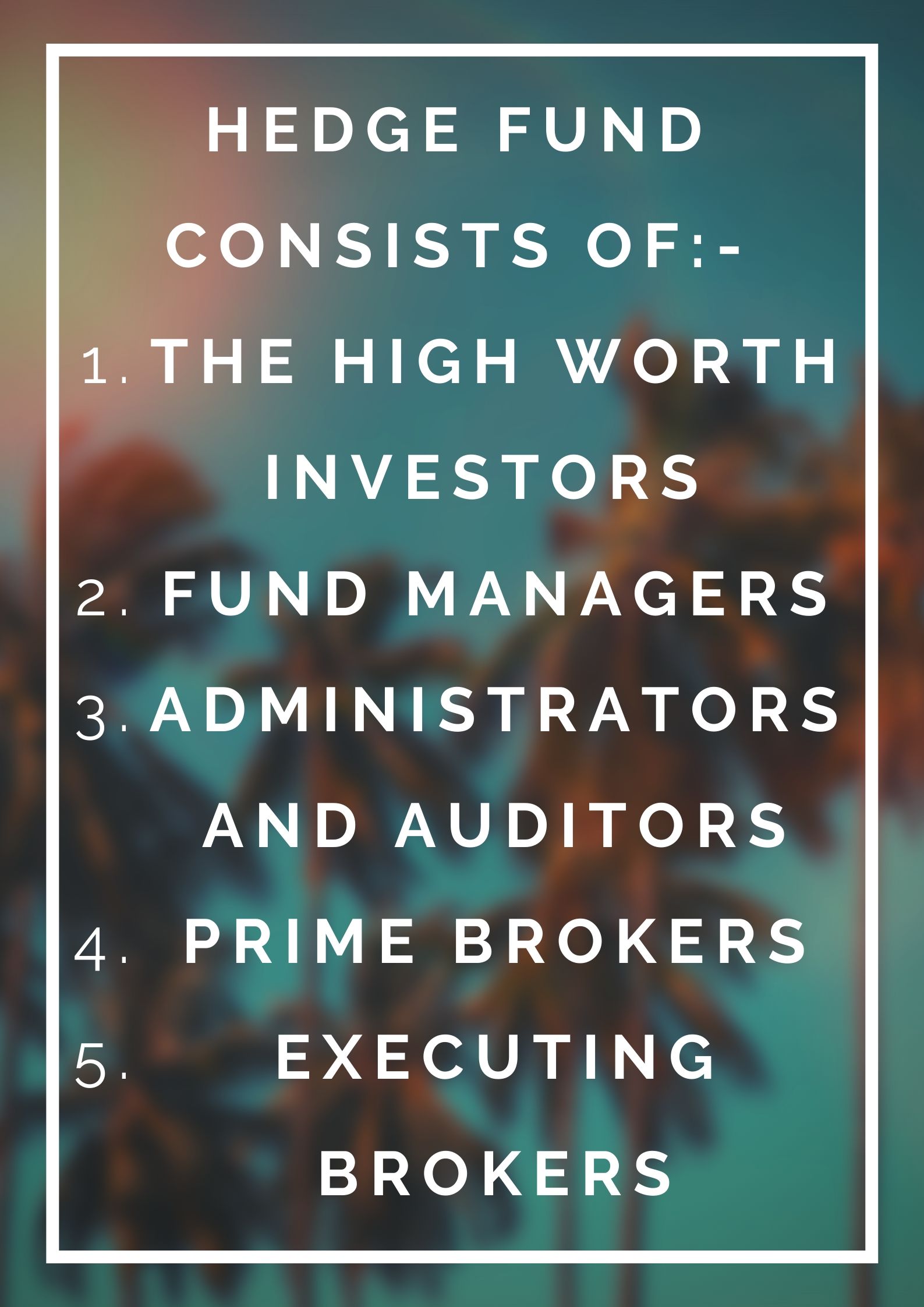What are Hedge Funds? | Hedge Fund Terminologies
- 28 March 2020 | 1253 Views | By Mint2Save

Hedge fund is a type of investment vehicle, where hedge means protection against any sort of risk is like a private investment in which money is collected from an accredited investor or institutional investor and then invested in various assets.
In simple words, we can say that a hedge fund is an investment company which is investing the money of its clients into different alternative assets to beat the market or guard from unforeseen market changes. It is an investment pool. Hedge funds are not regulated by the SEC and thus can’t market themselves and can’t take money from the general public. 
A hedge fund can be:-
(a) Created in America
(b) Created outside America
The investor can invest either in a hedge fund company made in America or outside America. The Hedge Fund company made in America it is called Domestic Hedge Fund company, and if it is made outside America, it is called offshore Hedge Fund Company. The offshore hedge fund companies are made in such countries from where tax benefits can be availed, and they are not regulated by America’s securities Exchange Commission (SEC).
Hedge Fund Consist of:-
- The high worth investors
- Fund Managers
- Administrators and Auditors
- Prime Brokers
- Executing Brokers
Types of Hedge Funds are:-
- Macro Hedge Funds:– under this, investment is made only in stocks, options, currencies, and bonds with a hope of profit maximization with a change in Macroeconomic variables like interest rate and policies. The investments done in macro hedge funds are very leveraged and highly diversified.
- Equity Hedge Fund:– This Hedge fund is also known as Long/Short hedge fund as it involves investing in undervalued securities and later shorting these securities when they get overvalued. In this, the fund manager acquires the assets at a cheaper rate and then sell it at a higher price.
- Relative Value Arbitrage Hedge Fund:– under this, the securities and assets that are expected to appreciate shortly are purchased. On the other hand, the security which is expected to depreciate is sold.
- Distressed Hedge Fund:– under this, securities of a company are purchased at a high discount or when their value is less with a hope that they will appreciate in the near future. This hedge fund gets risky if the value of the securities doesn’t increase soon.
Features Of Hedge Fund:-
Some of the features of the Hedge Fund are:-
- Different from Mutual Funds:- Hedge fund is separate from Mutual fund as mutual funds are regulated investments, whereas Hedge funds are private investments. In Hedge funds, the stakes are done only with the motive to earn a higher return on the investment.
- Hedge Funds are not liquid:- one crucial characteristic of Hedge Fund is that they are not usable, which means that the investors can take out their money only a couple of times. This means that the investors can withdraw or take out their money only the number of times as limited by the fund manager. Thus the money invested gets locked for an extended period.
- Not regulated by SEC:– Hedge funds are not governed by Americas Securities and Exchange Commission. Most of the Hedge Fund Managers don’t register themselves with the Financial Industry Regulatory Authority, which is a significant self- regulatory body in the business of investment. Still, whether they are registered or not, they can’t commit any fraud.
- Minimum investment:- The minimum investment to be made by an investor in a Hedge fund is Rs 1 crore, and due to this, the general public can’t invest in it. Only accredited investors or investors having high net worth are suited for such an investment.
- Fee:- On a Hedge Fund both, expense ratio and management fee are applied. The management fee applied on a hedge fund in India is less than 2% or 1% whereas the profit-sharing is between 10 to 15%.
- Investment alternatives are available:- In a hedge fund, the manager can invest the investment of investor into various assets like currencies, stocks, real estate, equities and bonds and many more.
Is It Easy And Safe To Invest In a Hedge Fund?
Investing in a Hedge Fund is not a good option as we have often heard the stories of the investors who suffered the high amount of investment due to wrong and fraudulent activities that take place in a hedge fund. The hedge fund involves high risk and is thus governed by our Indian law and regulation, which says that any person who invests in hedge fund needs to qualify itself as an accredited investor.
According to Indian laws and regulation, only the person whose income for the last two years is greater than $200,000, excluding the personal residence can only invest in the Hedge fund. The reason behind this is that it involves a high amount of risk and are considered as unrecorded securities and are thus made available only to few people who are financially stable investors and is not offered to the public. Therefore, in a hedge fund, only those individuals can invest who have a high net worth.
How Does a Hedge Fund Work?
The hedge fund is an investment pool where accredited investors invest their money, and the fund manager further invests that money into various assets and securities. Under a Hedge Fund, the fund manager explains the strategy to the investor and the investor in return expects that the fund manager will stay on the policy as said by him. The strategy so involved in a hedge fund are:-
- Sell Short
- Use of Arbitrage
- Investment towards an event
- Investment in high- discount security
One big thing to be noted while investing in a hedge fund is that you must be an accredited investor or a high worth investor. The investor must be mentally prepared for the venture and should know how much risk they can bear.
How Does a Hedge Fund Make Money:-
Hedge Fund is making money by charging the management fee and the performance fee. The cost operates between 2% to 20% in which the fund manager gets 2% of the assets and 20% incentive of the profit every year.
- Management Fee:- This fee is paid monthly or quarterly so that the fund manager can pay the daily expenses of the hedge fund. It is calculated based on the percentage of assets under the management and can range between 1 to 4% depending upon the funds available.
- Performance Fee:- It is Calculated based on the profit percentage of the funds. In this, if the funds make money, the fund manager gets paid, and in case they don’t make a profit the fund manager doesn’t get paid and thus it acts as an incentive for the manager. This fee serves as a motivation for the manager has he gets encouraged to generate more return.
However, this system is highly criticized as even if the hedge fund incurs looses still the fund manager manages to earn a 2% amount of the invested assets.
Difference between a Hedge fund and Mutual fund:-
- Mutual Funds are regulated investments where the hedge funds are private investments.
- Mutual funds can be offered to the general public, and anyone can invest in them, whereas in a hedge fund, only the accredited investor can invest.
- Mutual funds don’t involve high risk, whereas the hedge funds are known for their high level of risk and have the aim of acquiring a high return on investment.
- Mutual funds don’t take any share from the profits whereas, in hedge funds, 20% of the performance fee is made from the profit.
- In mutual funds, the management fee ranges from 1 to 2% whereas, in hedge funds, the management fee ranges from 1 to 4% based on funds available.
Conclusion
Through this article, we aim to provide our audience with complete knowledge about the hedge fund and help them to differentiate between the hedge fund and the mutual fund. In this article, we explained what hedge funds are and who can invest in them. Any person who has a high worth income and can invest Rs. 1 Crore can invest in the hedge fund, and since is unregulated and not controlled by SEC, so it is not offered to the general public to make investments.
The hedge funds are making money through management fee and performance fee, and in hedge funds, the fund manager plays a crucial role as it is the fund manager who looks after the investment of the investor.









